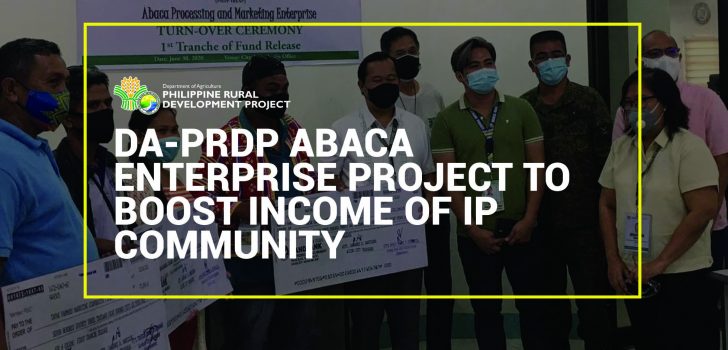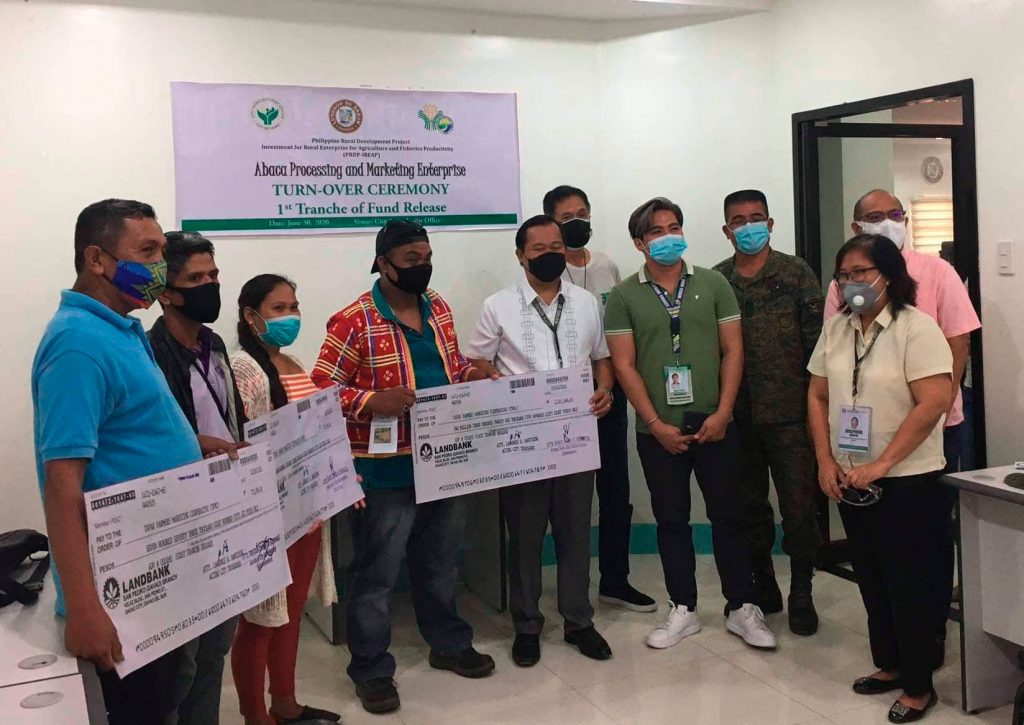
DA-PRDP abaca enterprise project to boost income of IP community
Indigenous Ata tribe in a remote village of Tapak in Paquibato District, Davao City now looks forward to a stronger abaca enterprise.
This came after the Department of Agriculture through its Philippine Rural Development Project (PRDP) has turned over P3.8-million funding assistance to Tapak Famers Marketing Cooperative (TFMC) for its Abaca processing and marketing project.
Of the said amount, P2.3-million was covered by the loan program while the remaining amount was allocated by both the government and the Davao City government as their counterpart.
The turned over funds is the first tranche out of funding the approved P13.4-million total project cost.

Tapak Farmers Marketing Cooperative Chairman Raian Latawan with other two co-op members receive the first tranche of fund release from the PRDP for their Abaca processing and marketing enterprise in a simple turnover ceremony held June 30 at the City Agriculture Office, Davao City. Photo Credit: I-REAP/RPCO11
The abaca processing and marketing project will include construction of four postharvest facilities particularly storage and solar dryer with eight stripping machines in Paquibato’s four production clusters in Tapak Proper, Butay, Mangani, and Panlawayan. It will also procure tractor for hauling abaca fiber in remote areas to its consolidation areas in Tapak Proper and Butay and one delivery truck to deliver their products directly to the intended buyers.
TFMC Chairman Rain Latawa said that a total of 82 hectares are planted to abaca in their area. “We however remain at a subsistence level due to low investment capital for value-adding activities and market expansion.”
Most of their farmers are using the traditional or hand stripping method in extracting abaca fiber, which is laborious and time-consuming limiting their capacity to engage in other productive farming activities.
“With DA-PRDP’s assistance and the support of the Davao City government, we can now look forward into a more productive abaca agribusiness enterprise as we can now improve the quality of our fiber with more stripping machines and storage facilities,” Latawan said.
“Hauling vehicle will enable us to reach to remote areas and hasten the consolidation of our products to meet the required volume and timeline from our buyers,” he added.
As DA-PRPD enabled them to harness the potentials of their abaca production, Latawan along with their co-op members who are mostly from IP community now looks forward to a better source income.
“I hope that when my fellow lumads will have stable income, every holiday season they will go to the city proper not to beg but go on shopping,” he enthused. (Noel T. Provido| InfoACE 11)
